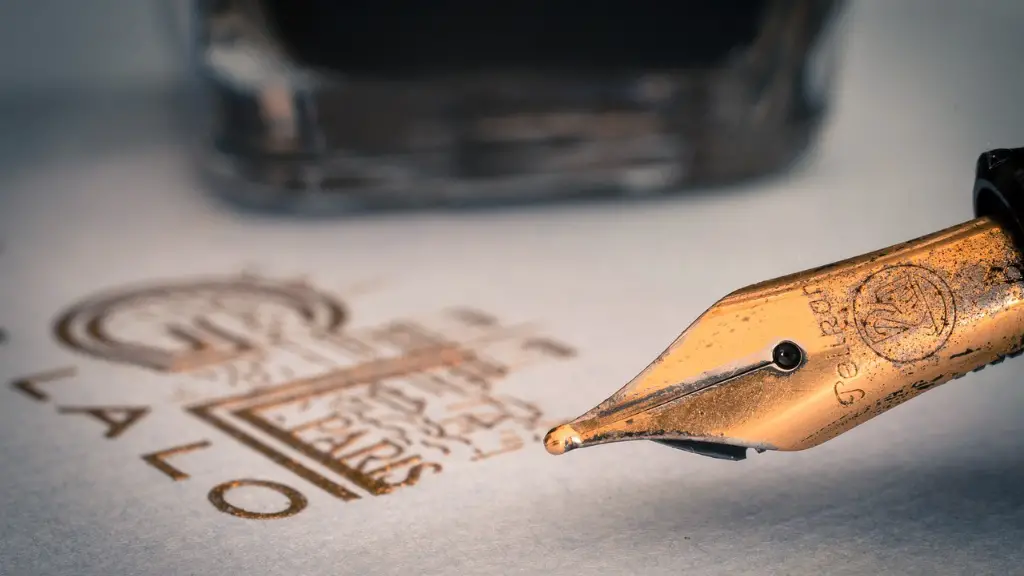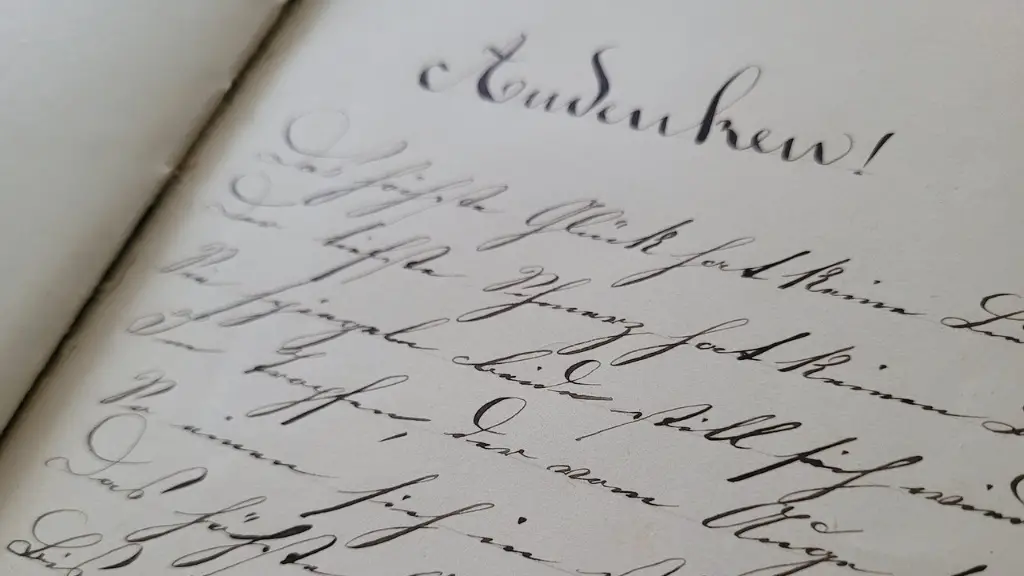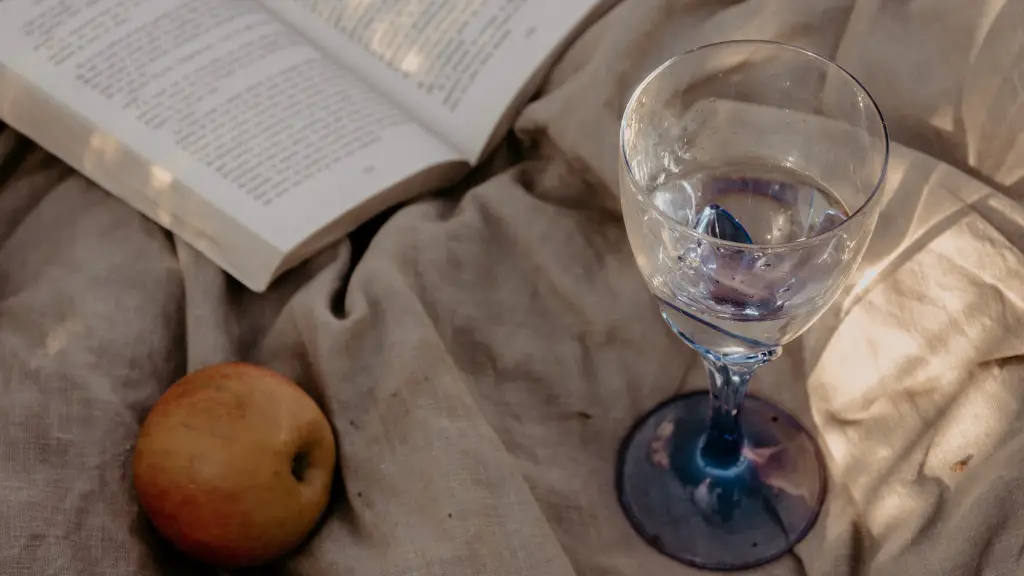Poetry and Drama Defined
In simple terms, the difference between poetry and drama is that of written and performed art forms. Poetry is the composition of words and ideas written down in specific forms, while drama is the enactment of stories and characters through performance. Both types of art have been present throughout humanity’s shared history and continue to be used as vehicles of expression and communication.
Comparing Poetry and Drama
In terms of artistic expression, poetry and drama are two distinctly different mediums. Drama is meant to be experienced through performed narratives or monologues, usually involving characters, settings, and other elements from a story. Poetry, on the other hand, is meant to be enjoyed visually and mentally through the reading of words that are lyrical and evocative of certain emotions.
The written forms of poetry and drama also differ greatly. Poetry is generally divided into two primary types, lyrical and narrative. Lyrical poetry consists of words written to create a specific emotion or atmosphere, often seeking to create an expression through rhythm, complete with rhyme, meter, and imagery. Narrative poems tell a complete story or serve as anecdotes or vignettes, usually in the form of a longer poem.
Dramatic writing usually follows a specific format meant to provide a foundation for a performance. Commonly, a dramatist will provide details on characters, settings, plot points and intentions, and use stage directions to move the story forward. Stage directions in dramatic writing are usually long descriptions of characters’ actions and emotions, talk about the environment and the blocking of actors’ movements, and establish sound effects and lighting cues.
Themes of Poetry and Drama
Both poetry and drama are often used to convey messages or themes. Poems can be written on any range of topics and emotions, often seeking to illustrate a certain view on a certain topic. Dramatic plays can also explore a wide range of topics but are generally built around a central conflict and the resolution of it, such as in classic Greek tragedies.
The themes of poetry and drama can also be very similar. Both media types often explore themes of love, loss, and struggle, as well as more abstract topics such as morality, identity, and meaning. Both also often reflect on questions of mortality, politics, and fate, as well as celebrating life and joy through humor and happiness.
Uses of Poetry and Drama
Poetry and drama have found their uses in many areas of life throughout history. Poetry has often been used as a means to convey ideas or perspectives throughout literature, religion, and politics. It has also been and remains the central element of some of the world’s most popular entertainment, from ballads and songs to spoken word performances.
As for drama, it has had a long history in relation to entertainment. From the ancient Greeks to modern day Hollywood, drama has been used to tell stories and create suspense. Additionally, many sources cite the theater and other acts of performance as being integral to the evolution of political and social thought, with drama often containing subversive messages that may not have been seen as acceptable in other forms.
Potential Outcomes of Poetry and Drama
The potential outcomes of both poetry and drama are generally the same. Both are tools through which people can explore the human condition and express their thoughts, feelings, and experiences. But the methods through which these messages are presented can differ greatly, depending on whether the medium is written or performed.
When experienced through live performance, drama can be immensely moving, emotionally and intellectually. The characters, action, and dialogue all working together to create a powerful effect on the audience which usually leaves them with a lasting impression.
As for poetry, when read through the written word, it can deliver profound experiences to the reader. Artfully chosen words can stimulate the subconscious, the conscious mind, and the senses, conveying complex ideas and emotions in a short span of time. It is for this reason that poems are able to disconnect us from the mundane, connecting us to the universal.
How Poetry and Drama Are Connected
Though they exhibit great stylistic and technical differences, there remain certain elements that are common to both types of art. Both poetry and drama rely heavily on metaphor, hyperbole, and other literary tools to create depth and complexity to the stories they tell. These literary mechanics are often key when exploring the major themes of both art forms.
Additionally, while drama is a performed art form, certain classic Greek plays are renowned for the lyrical and poetic language used to evoke certain emotions and behaviors from characters. As such, there are certain connections between the two forms, from the expected to the unexpected.
Writing and Performing Poetry and Drama
As an art form, both poetry and drama can be written and performed for various purposes. Writing poetry requires the use of techniques and styles to create meaning, such as personification, assonance, and metaphor, among many others. In terms of drama, it requires a deep understanding of narrative and storytelling, working with character and plot points to craft an entertaining and meaningful performance.
When it comes to performing poetry and drama, certain elements must be considered and perfected. From pronunciation and speech delivery, to timing and improvisation, both forms require a certain level of experience and talent to be done properly.
The Effects of Poetry and Drama
The sheer variety of expression available through poetry and drama makes them powerful tools for communication and change. Poetry, for instance, has been used for centuries by various cultural and political movements to spread truths and defy expectations, often subverting dominant discourses through subtle yet effectual language.
Drama, as an enacted form of expression, is also essential in communication. From theatre to movies, drama allows us to visually and emotionally experience events and stories that would otherwise remain hard to comprehend. As such, it’s no surprise that drama has become incorporated into a variety of mediums and social activities, from Shakespeare to stand-up comedy.
The Power of Poetry and Drama
The potential of poetry and drama lie in the fact that both forms give us the freedom to express our own views and experiences in a unique and creative way. Whether it’s writing a poem about heartache or performing a classical monologue on the stage, the power of poetry and drama lies in its ability to capture the essence of an emotion or an event, providing a way for people to make sense of our world and their place in it.
Further, poetry and drama can be an effective tool for creating empathy and understanding among different people. Using performance and wordplay to evoke certain emotions, both forms allow us to observe our human condition from different viewpoints, helping us to relate to each other’s struggles and joys.
The Significance of Poetry and Drama
From offering solace and catharsis to stressing the importance of values and morals, the purpose of poetry and drama can be seen throughout history. From circulating subtle political messages to simply providing a means of entertainment, art forms such as these have served an invaluable role in the communication of ideas. And while the methods of expression may differ between these art forms, they both seek to demonstrate certain human truths, often in a rather unique and powerful way.


